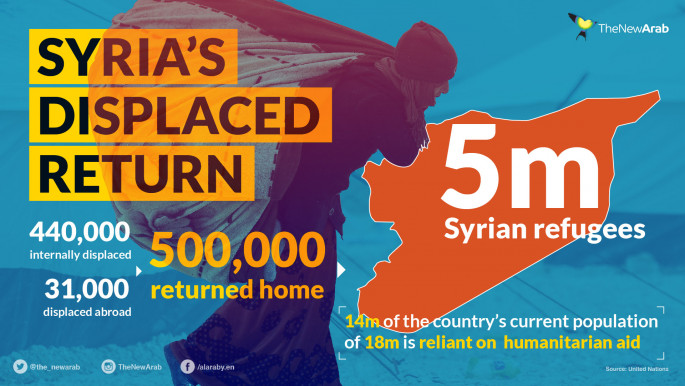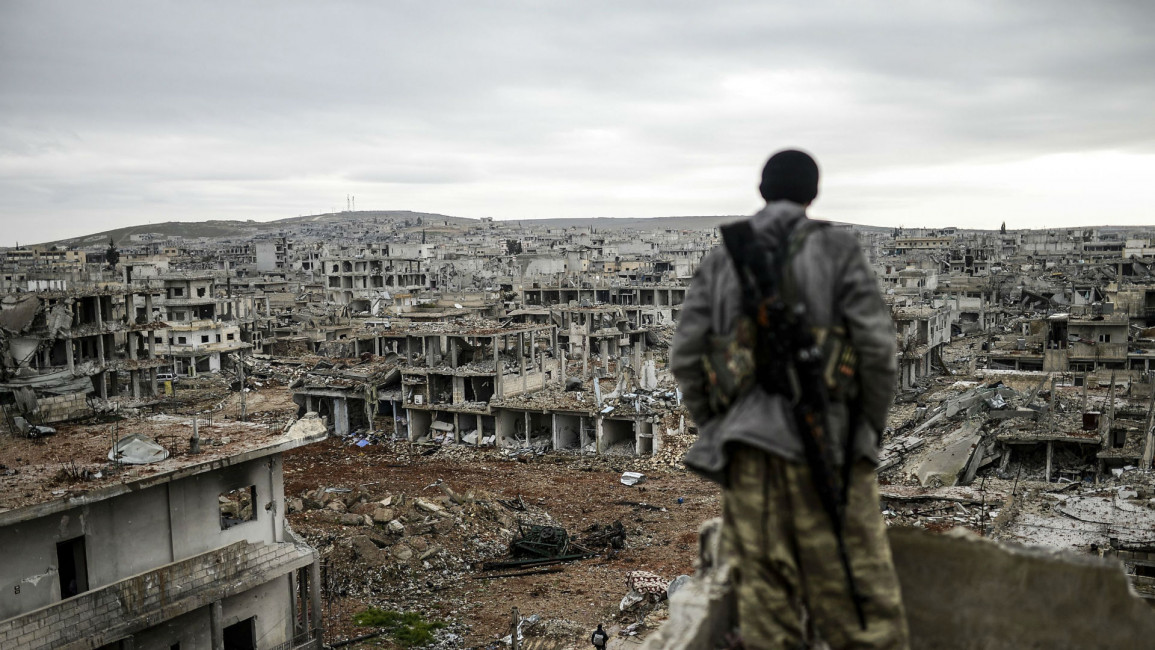Doubts expressed over Syria regime's ceasefire plan as Astana peace talks restart for fifth time
A three-way meeting of the talk's co-sponsors – Russia, Iran, and Turkey – was underway in the Kazakh capital, Astana, aimed at finalising four so-called de-escalation zones, Russian news agencies reported.
The two days of meetings will involve bilateral talks before a plenary session bringing together all participants on Wednesday.
The army general command said in a statement carried by state television that the ceasefire began at midday on Sunday to support "reconciliation efforts", the second unilateral ceasefire in the past two weeks.
 |
|
Hours after the announcement was made, rebel groups and witnesses said Syrian regime airplanes dropped barrel bombs in the southern city of Daraa, Naima to its east, and surrounding countryside near the provincial.
The army, which has in recent months escalated strikes in Deraa in its campaign to reach Jordan's border, did not respond to the allegations.
Ceasefire doubts
Opposition figures have expressed doubts about the Syrian regime's announced ceasefire plan, describing it as a ploy to drag the opposition to Astana.
"This ceasefire is an attempt by the Russians and the regime to bring back the opposition to Astana and give them assurances on the ground they will stop the shelling on condition they attend," Sohaib Alraheel, spokesman of Liwa al Furqan Brigades, a faction of the rebel Free Syrian Army (FSA), said, according to Reuters.
Major Issam al Rayes, spokesman for the Southern Front, a coalition of Western-backed FSA rebel groups, said the armed opposition were "very distrustful" of the regime's announcement, with rebel groups accusing the army of breaking past ceasefires
"The regime is lying and the Russians are lying and are not serious in achieving a ceasefire," al Rayes told Reuters.
De-escalation zones
The agreement signed by regime backers Russia and Iran and opposition backer Turkey to create four "de-escalation zones" was seen as a potential breakthrough in the Syrian war.
The deal laid out four areas where the regime and rebels should halt hostilities, including airstrikes, for six months.
While violence decreased in the areas, with the notable exception of Daraa, the sides failed to meet a June 4 deadline to demarcate the exact borders of the zones, and it remains unclear who will police them.
Fateh al-Sham, previously known as the al-Nusra Front, and the Islamic State group, are not parties to the troubled government-rebel truce.
The talks in Astana are taking place parallel to broader political negotiations the United Nations is backing in Geneva that are due to restart in mid-July.
Syria's conflict evolved from a bloody crackdown on protests in 2011 to a devastating war that has drawn in world powers, including Russia and a US-led international coalition.



